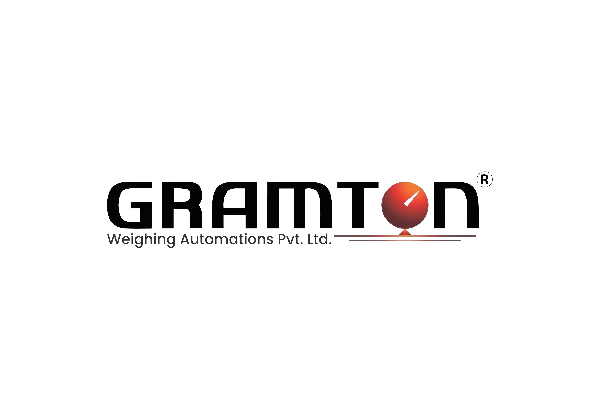Weighing Industry Advances: IoT, AI, Regulatory Updates Shaping the Future
- Gramton Weighning Automations Pvt Ltd.
- Oct 8, 2024
- 3 min read
Empowering Weighing with IoT Technology!
The weighing industry is experiencing transformative changes driven by advancements in technology, increasing demand for automation, and tightening regulatory standards. From smart scales enabled by IoT (Internet of Things) to the introduction of AI-driven solutions, the integration of new technologies is reshaping how industries approach precision, data management, and compliance. Let’s explore some of the latest news and trends shaping the future of the weighing industry.
IoT and Wireless Connectivity Revolutionize Weighing Systems
The integration of IoT with weighing systems continues to be a game-changer across industries. IoT-enabled scales are being adopted widely for their ability to provide real-time data collection and remote monitoring. This is particularly impactful in industries such as manufacturing, logistics, and food production, where precise tracking of materials and inventory is critical.
For example, companies can now automate inventory management by receiving continuous data on material consumption, preventing overstocking or stock shortages. Remote monitoring also allows managers to oversee processes across multiple sites from one central location, optimizing productivity.
Moreover, the deployment of wireless technology reduces the need for physical connections, minimizing downtime due to hardware issues and making it easier to scale systems as businesses grow. These smart systems are increasingly used in environments where data integration with ERP systems is essential for seamless operations.
AI and Machine Learning in Industrial Weighing
The introduction of AI (Artificial Intelligence) into the weighing industry is driving automation to new levels. AI-powered scales are equipped with sensors and algorithms capable of making real-time adjustments based on environmental conditions, product inconsistencies, or operational needs. For instance, some advanced weighing systems can compensate for vibrations or uneven surfaces, ensuring more accurate measurements in unpredictable conditions.
Machine learning (ML) is also playing a role in optimizing maintenance and reducing downtime. These systems can predict wear and tear or malfunctions before they occur, allowing for proactive maintenance. This predictive maintenance helps avoid unexpected breakdowns, thereby improving the overall efficiency of industrial operations.
AI is also being utilized in data analytics for weighing operations, allowing companies to collect, analyze, and leverage vast amounts of data to improve decision-making and operational efficiency.
New Regulatory Standards for Weighing Equipment
As the weighing industry becomes more advanced, governments and industry bodies are tightening regulations to ensure accuracy, compliance, and safety. In sectors like pharmaceuticals and food production, adherence to strict regulatory standards is crucial for ensuring product quality and consumer safety.
In 2023, updates to ISO standards and other industry-specific guidelines have been rolled out, requiring weighing equipment to meet enhanced performance and accuracy benchmarks. For example, the International Organization of Legal Metrology (OIML) has updated its standards to incorporate the latest technologies like digital load cells and connected systems, which provide more precise and reliable measurements than traditional analog models.
For businesses operating in highly regulated industries, it’s becoming increasingly important to ensure that their weighing equipment complies with these new standards. Non-compliance can lead to penalties, product recalls, or even legal consequences.
The Rise of Sustainable Weighing Solutions
With sustainability taking center stage across industries, the weighing industry is no exception. Manufacturers are focusing on producing weighing systems with lower energy consumption, longer battery life, and recyclable materials. Furthermore, companies are investing in scales with solar power options, particularly for remote or off-grid operations, reducing their carbon footprint.
In 2024, several manufacturers announced weighing systems designed with environmental considerations in mind, including Gramton’s 40-hour battery backup platform scales, which provide uninterrupted performance while minimizing energy consumption. These advancements ensure that businesses are not only meeting their production needs but also contributing to greener operations.
Blockchain Integration for Traceability
In industries like food and pharmaceuticals, where traceability is critical, blockchain technology is making its way into weighing systems. Blockchain can be used to record and track each step of the weighing process, creating an immutable ledger of data that can be accessed by all stakeholders. This ensures transparency, from raw material sourcing to final product delivery.
As regulatory demands increase for traceability, especially with stricter global trade regulations, blockchain-integrated weighing systems provide a secure, decentralized way to record data and ensure compliance.
Conclusion: A Future Shaped by Innovation
The weighing industry is rapidly evolving, with IoT, AI, regulatory updates, sustainability, and blockchain technology pushing the boundaries of what’s possible. As industries like manufacturing, food production, and pharmaceuticals continue to adopt these innovations, the future of weighing will be marked by enhanced precision, increased automation, and improved sustainability.
At Gramton Weighing Automation Pvt. Ltd., we are at the forefront of these changes, providing state-of-the-art weighing solutions that meet the latest technological and regulatory requirements. Our commitment to innovation ensures that our clients are always equipped with the most advanced tools to improve efficiency, accuracy, and sustainability in their operations.
Stay ahead of the curve by exploring how our IoT-enabled, AI-powered, and compliance-ready weighing systems can transform your business.






Comments